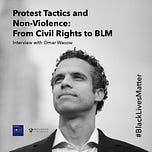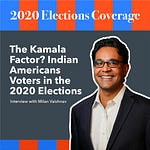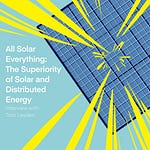Given the tragic incident of the killing of George Floyd and the subsequent protests, it’s probably the right time to talk about protests. What are the effective ways to protest? How have the shape and form of protests transformed throughout the past decades as black people fought for their rights? And certainly, how justified is violence or how effective is non-violence in protests? Unfortunately, some of the protests recently have contained violence and looting, and President Trump even threatened to deploy troops on the protestors, further escalating the tension. Many have accused the protestors for not doing it “right,” but is there a right way to do it? It’s really not as if when black people protested in nonviolent ways, such as kneeling during the NFL anthem, they were embraced with open arms by those in power! So, are people simply hiding behind the attacks on the “means,” when what they truly oppose is the argument itself that BLM? Whether violent or not, how should we think about the role of suffering and the dramatization of suffering throughout the history of protest movements? In today's age, how has social media and the rise of technology transformed the way the public perceives pain and injustice? Does the near unanimity of outrage and activism in the aftermath of George Floyd's killing hint that this is finally the moment for fundamental changes to actually happen in our criminal justice system and beyond? Policy Punchline is not partisan, but we believe that Black Lives Matter and that there are important, constructive dialogues to be had at the moment. We sincerely hope to play a small role in that by bringing you this conversation with Princeton professor Omar Wasow, one of the most renowned scholars today studying issues related to protest movements, race, and politics. Omar Wasow is an Assistant Professor in Princeton’s Department of Politics. His research focuses on race and politics, protest movements and statistical methods. Before joining the academy, Omar served as a regular on-air technology analyst and was the co-founder of BlackPlanet.com, a social network he helped grow to over three million active users. In 2003, he helped found a high performing K-8 charter school in Brooklyn. He is a Henry Crown Fellow at the Aspen Institute. He received a PhD from Harvard University and a BA from Stanford University.
1×
0:00
Current time: 0:00 / Total time: -1:34:57
-1:34:57














Share this post